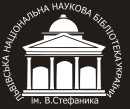

Roman Blikharskyi
PhD in Social Communications
Vasyl Stefanyk National Scientiffi c Library of Ukraine in Lviv
(Lviv, Ukraine)
DOI: https://doi.org/10.37222/2786-7552-2023-2-1
PARADIGMAL FOUNDATIONS OF PRESS STUDIES
The article describes a paradigmatic model of scientifi c research, which consists of a system of beliefs held by scientists, concepts, theoretical models, epistemological positions, methodological techniques and axiological principles that determine the spectrum of scientifi c approaches to the study of media phenomena.
It was found out that scientists dealing with the problems of social communications must take into account the complexity of the object of study, and the research process itself must be designed in such a way that, having defi ned principles, directions, clear disciplinary frameworks, a proven theoretical and methodological base, it also had the opportunity for interdisciplinary interaction to be adaptive to current problems and scientific tools.
In the article, the paradigmatic meta-theoretical approach is considered as one of the effective ways of organizing a system for solving ambivalent tasks that may arise when conducting press studies. The main modern approaches to the construction of theoretical-methodological and epistemological models for the study of journalistic and socio-communication issues on an interdisciplinary, polyparadigmatic basis are analyzed, and the dominant research paradigms on the basis of which the study of mass media abroad is conducted are characterized.
A number of advantages of using a paradigmatic approach in the organization of press studies and in the eff ective exchange and representation of acquired knowledge are outlined, in particular, adjustment of the process of studying the press, systematization of concepts, theories and methods of its study, determination of scientifi c standards for conducting press studies, etc.
It was determined that an important task of solving problems related to the paradigmatic orientation of press studies is to conduct a meta-scientifi c analysis of domestic scientifi c works on communication studies in the future, which will allow to reveal contradictions and consistency between the basic and operational elements of research in order to fi nd and correct the optimal model of media and press studies.
Keywords: press studies, journalism studies, social communications, scientific paradigm, metatheory, metascience, mass media, press.
References
- Butyrina, M.V. (2008). Do pytannia pobudovy metateorii masovoi komunikatsii [To the issue of building a meta-theory of mass communication], Naukovi zapysky Instytutu zhurnalistyky, Kyiv, (33), 40–44 (in Ukr.).
- Habor, N. (2013). Kinets zhurnalistykoznavstva chy pochatok novoi epokhy doslidzhen [The end of journalism studies or the beginning of a new era of research], Mediakrytyka. Retrieved from https://www.mediakrytyka.info/novi-tehnologii-media/kinets-zhurnalistykoznavstva-do-pytannya-pro-sotsialnokomunikatsiynyy-napryam-suchasnykh-mediadoslidzhen.html (in Ukr.).
- Kazakova, T. V. (2008). Suchasne ukrainske zhurnalistykoznavstvo kriz pryzmu kontseptu «sotsialni komunikatsii» [Modern Ukrainian journalism studies through the prism of the concept of «social communications»], Naukovi zapysky Instytutu zhurnalistyky, Kyiv, (30), Sich-berez., 6–10 (in Ukr.).
- Kun, T. (2001). Struktura naukovykh revoliutsii [The structure of scientific revolutions], Kyiv: Port-Royal, 228 (in Ukr.).
- Mantulo, N. B. (2010). Paradyhma yak kontsept teoretychnoho dyskursu masovoi komunikatsii [Paradigm as a concept of theoretical discourse of mass communication], Naukovi zapysky Instytutu zhurnalistyky, Kyiv, (40), Lyp.–veres., 25–30 (in Ukr.).
- Romaniuk, M. M. (1993). Naukovo-doslidnyi tsentr periodyky: neobkhidnist stvorennia i perspektyvy rozvytku [Scientific research center of periodicals: necessity of establishment and prospects of development], Ukrainska periodyka: istoriia i suchasnist: tezy dop. іpovidoml. Vseukr. nauk.-teoret. konf. (9–10 hrud. 1993 r.), Lviv, 3–4 (in Ukr.).
- Romaniuk, M. (2018). Presoznavchi doslidzhennia naukovtsiv LNNB Ukrainy im.. V. Stefanyka [Press studies of scientists of Vasyl Stefanyk National Scientific Library of Ukraine], Ukrainska periodyka: istoriia i suchasnist: dop. ta povidoml. dvanadtsiatoi Vseukr. nauk.-teoret. konf., Lviv, 30 lystop. – 1 hrud. 2018 r., Lviv, 76–82 (in Ukr.).
- Romaniuk, M. (2000). Ukrainske presoznavstvo na porozi XXI stolittia [Ukrainian press studies at the threshold of the 21st century], Lviv, 110 (in Ukr.).
- Snitsarchuk, L. (2014). Obiednani doslidnytskym poshukom [United by exploratory search], Zhurnalistyka, Kyiv, (13), 41–45 (in Ukr.).
- Snitsarchuk, L. (2018). Shche raz pro bibliohrafiiu ukrainskoi presy, abo Chy zatrebuvanyi nyni ukrainskyi mediadosvid XIX–XX st. [Once again about the bibliography of the Ukrainian press, or whether Ukrainian media experience of the 19th-20th centuries is in demand today], Ukrainska periodyka: istoriia i suchasnist: dop. ta povidoml. dvanadtsiatoi Vseukr. nauk.-teoret. konf., Lviv, 30 lystop. – 1 hrud. 2018 r., Lviv, 96 (in Ukr.).
- Trachuk, T. A. (2012). Rozvytok istorii ukrainskoi presy u pratsiakh naukovtsiv pochatku XX st. [The development of the history of the Ukrainian press in the works of scientists of the beginning of the 20th century], Ukrainske zhurnalistykoznavstvo, Kyiv, (11), 5–8 (in Ukr.).
- Finkler, Yu. Vid zhurnalistykoznavstva do mediavistyky: yak ya b nazvav nashu nauku. [From journalism to media studies: how would I call our science], Detektor media. Retrieved from https://detector.media/production/article/206088/2022-12-18-vid-zhurnalistykoznavstva-do-mediavistyky-yak-ya-b-nazvav-nashu-nauku/ (in Ukr.).
- Guba, E. G., & Lincoln, Y. S. (1994). Competing paradigms in qualitative research. Handbook of qualitative research. Sage Publications, Inc. p. 105–117 (in Eng.).
- Kivunja, C. & Kuyini, A. B. (2017). Understanding and Applying Research Paradigms in Educational Contexts, International Journal of Higher Education, (6, 5), 26–41 (in Eng.).
- W. James Potter, Roger Cooper, Michel Dupagne (1993). The Three Paradigms of Mass Media Research in Mainstream Communication Journals. Communication Theory, (3, 4), November, 317–335 (in Eng.).
